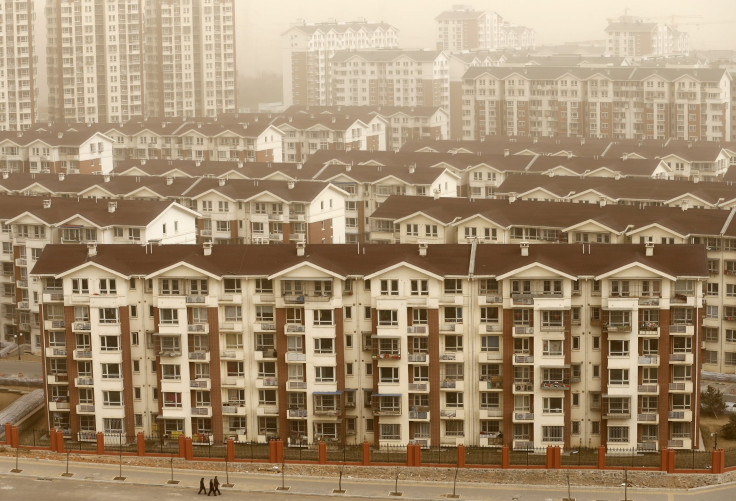Here’s What A Chinese Real Estate Expert Says About Whether There’s A Bubble Forming Or Not

Here’s the worst-case scenario: China’s housing market tanks, which sends the country’s financial system into free-fall, taking the global economy down with it. The result? You lose your job and end up eating only beans and rice as you slog through the next global economic recession.
This isn’t hyperbole. As outlined last month on “60 Minutes,” a collapse of China’s real estate market could have formidable global repercussions. If China falls, so could the U.S., in part because the Chinese would have to curb their purchasing of U.S. Treasury bonds, which fund U.S. deficit spending. China is also becoming an important market for goods, and Chinese consumers are particularly finicky about taking on consumer debt, unlike Americans.
This is why all eyes are on Chinese real estate, which makes up about a fourth of the world’s fastest-growing economy. There’s alarming growth in home prices in the country's urban centers, while at the same time there’s a housing surplus in many less-populated parts of the country, where many structures sit empty as investments waiting to mature.
So what’s going on besides the fact that the Chinese seem to want to live in cities?
Christopher Dillon, a Hong Kong-based Canadian writer and entrepreneur who has bounced around Asia for the better part of the past two decades, breaks it down into two general ideas: one idea suggests real cause for concern, while the other looks at Chinese buying and saving habits, which are considerably more austere than those embraced by Americans.
Dillon offered up the two sides of the coin to the Shanghaiist blog on Tuesday. Here’s the breakdown.
Reason to be worried: because the Chinese government is worried.
Headlines like “Shanghai New Home Prices up 273% in 7 years” make a strong case for the existence of a bubble. At one point in 2010, home prices in Beijing were 22 times higher than the average annual income, putting home ownership beyond many people’s reach. Since 2010, the central government has implemented a range of costly and unpopular measures to cool the property market, a course of action that the Chinese leadership is not considered likely to undertake unless it believes a bubble is forming.
Reason to be less concerned: Chinese don’t go into debt.
Research by CLSA, a Hong Kong-based equity broker and financials services group, indicates that in 2011, one-third of all Chinese buyers paid cash for their homes, up from 24 percent in 2007. Furthermore, 53 percent of people buying a dwelling for investment purposes paid cash. In addition, there is a 30 percent minimum down payment for first homes, with higher minimums for subsequent purchases, and the exotic mortgages that fueled the American subprime crisis are not available in China. There is also a strong cultural bias toward repaying debt. When property prices in parts of Hong Kong fell two-thirds after the 1997 Asian financial crisis, the mortgage default rate peaked at just 1.4 percent.
© Copyright IBTimes 2024. All rights reserved.






















